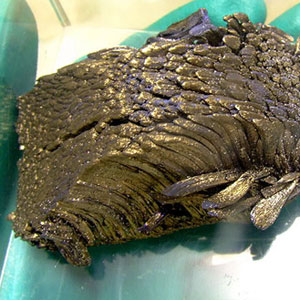Every time a new cell phone or laptop appears on the market, an old cell phone or laptop gets hauled away to the dump. The same is true of televisions, iPods, and virtually every other gadget that makes modern life so … modern. We live in a disposable culture, and with Christmas and New Years almost upon us, the old saying, “Out with the old, and in with the new!” takes on special meaning.
The best among us recycle, but in practical terms, this means that over 300 million tons of old computer hardware, mobile phones, TV sets, and other electronic waste ended up being shipped out of the country in 2007 alone. Just think of how many gadgets have popped up since then, and then think of how much e-waste will make its way to China and India in the post-Christmas season.
In an effort to stem that tide, Silicon Valley companies including Apple are supporting legislation to prevent the sale of e-waste to developing countries. In a press release, Rep. Mike Thompson (D-CA) says, “Every year, we scrap 400 million units of electronics in the U.S. Each piece of e-waste can be incredibly harmful to our environment. Congressional action to stop the free flow of these dangerous materials is long overdue and we must act now before it is too late.” Thompson is cosponsoring the Responsible Electronics Recycling Act, to promote American recycling as opposed to dumping discarded products overseas.
It makes good economic sense, but could it also make good strategic sense? Perhaps. In an article appearing today, PC World asks its readers to “Imagine a cellphone the size of a shoe. Or a laptop weighing 10 kilograms. That’s what we would be carrying around today, if not for the rare earth metals, a group of materials with unique properties that have enabled the miniaturization of electronic components including capacitors, lasers and powerful magnets.”
The fact is that each of these items we so readily discard and ship overseas contains rare earth metals, and China currently has a monopoly on those metals—a monopoly the U.S. is eager to break. In fact, the U.S. was the number one producer of rare earth metals production in the late 1980s. Today, the metals are vital, not only for our household gadgets, but for everything from electric car batteries to wind turbines to energy efficient lighting to the fins used in ballistic missiles. Not only is China manufacturing most of these products. They are also producing the raw materials necessary to manufacture them. Imagine if they attempted an embargo.
It’s not that unlikely either. After a dispute with Japan, China recently placed an embargo on rare earth metals to that country, severely hampering Japan’s electronic industry. Japanese officials have gone so far as to call it, “A threat to Japan’s economy.” To counter the shortage, Japan has started recycling rare earth metals from discarded electronics, finding many other metals along the way. “There’s gold in them thar cell phones,” or in more formal Japanese business talk, “We’ve literally discovered gold in cell phones.” They’ve also found indium, which is used to manufacture LCD screens, and antimony, which is used in silicon wafers—a Silicon Valley staple.
If tensions with China ever heat up, we could be facing the same shortages right here in the U.S.—right here in Silicon Valley. Companies like Apple are beginning to realize this, and with the Responsible Electronics Recycling Act, are trying to put a stop to it before it’s too late.
Read More at California Watch.

 Sports Roundup: Oct. 6
Sports Roundup: Oct. 6 


